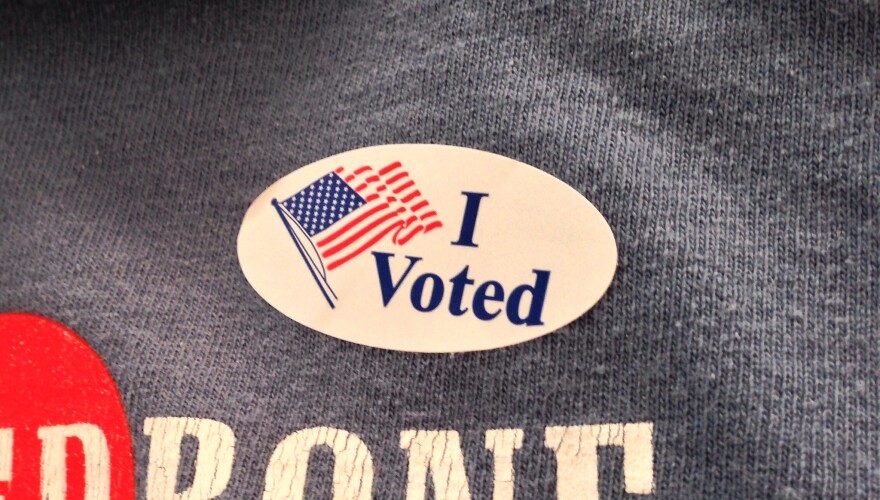Kansas’ “strictest in the nation” election law may have been written with the intent to discriminate against certain groups of voters and should be reviewed by the U.S. Department of Justice to ensure that it doesn’t violate federal law, a civil rights panel says in a report issued Tuesday.
The report, written by the Kansas Advisory Committee to the U.S. Commission on Civil Rights, says that the proof of citizenship and voter ID requirements imposed by a 2011 Kansas law “may impose a substantially higher burden than that which has been previously challenged in the U.S. Supreme Court.”
Download the report from the Kansas Advisory Committee to the U.S. Commission on Civil Rights.
Kansas lawmakers passed the Secure and Fair Elections, or SAFE, Act at Secretary of State Kris Kobach’s urging to guard against voter fraud. However, based on testimony received at hearings conducted in January 2016, the advisory committee says that voter disenfranchisement appears to be a much bigger problem than voter fraud.
“The number of eligible voters turned away from the polls in Kansas due to lack of required identification or failure to provide documentary proof of citizenship may far exceed the number of documented cases of voter fraud,” the report says, stressing that errors in voter registration don’t rise to the level of fraud.
“Those who continue to raise concerns regarding voter fraud have cited errors in registration data as evidence that voter fraud may be significantly more widespread that it appears,” the report states, specifically rebutting claims made by Kobach and President Donald Trump that illegal voting is widespread.
Evidence Of Voter Suppression
The advisory committee report says that research has found that stricter ID and registration requirements can suppress voter participation. It goes on to say that a preliminary analysis of Kansas turnout data “suggests that voter participation declined following the implementation of the SAFE Act.”
“Testimony indicated the SAFE Act may disparately impact voters on the basis of age, sex, disability, race, income level and affiliation,” the report says.
Kobach disputes that and other findings in the report, which he calls biased.
“The advisory committee report is not worth the paper that it was written on,” Kobach said in an interview Tuesday, insisting there isn’t credible evidence of voter suppression.

“These advisory committees exist in all 50 states and some do their work pretty carefully and others do not, and Kansas unfortunately did not,” he said, charging that members of the committee “were biased” against the SAFE Act.
“You could see that in the hearings themselves,” he said. “They obtained testimony overwhelmingly from people who were opposed to the Kansas law.”
Mildred Edwards, chairwoman of the Kansas committee, defended the report, saying members made “every effort” to get differing viewpoints.
“We worked really hard as a committee to find a bipartisan presentation panel to come before us,” Edwards said, noting that Kobach was among those invited to testify.
“We cast our net far and wide and we believe those individuals with the voices that should be heard were present at that hearing,” she said.
A Kansas ‘Poll Tax’
The cost of obtaining documents necessary to prove citizenship is also a barrier, the report says. While the law makes the documents available from state agencies at no cost, some prospective voters have been charged due to “insufficient training” of state workers. In addition, the report says fees charged to Kansans by agencies in other states constitute what amounts to an unconstitutional “poll tax.”
In addition to urging a Justice Department review of the SAFE Act, the report recommends that Congress establish a working committee to study the impact of a 2013 U.S. Supreme Court ruling that struck down the section of the Voting Rights Act that authorized federal oversight of election laws in states with a history of discriminating against voters. Congress should use the information generated by the working group to develop an updated formula to identify states that “require continued review,” the report says.
The report also says the congressional working group should study the feasibility of a national voter registration system to replace a state-based system that has resulted in a confusing patchwork quilt of election laws.
“The U.S. is currently the only major democracy without a standard voter registration system at the national level,” the report says.
Kobach said the recommendation is an indication of the committee’s “sloppy work.”
“If they had done their homework, they would know that is actually prohibited by the federal Constitution … which says that the states are in charge of the registration of voters and determining who the qualified voters are,” he said.
Jim McLean is managing director of the Kansas News Service, a collaboration of KCUR, Kansas Public Radio and KMUW covering health, education and politics in Kansas. You can reach him on Twitter @jmcleanks. Kansas News Service stories and photos may be republished at no cost with proper attribution and a link back to kcur.org.




